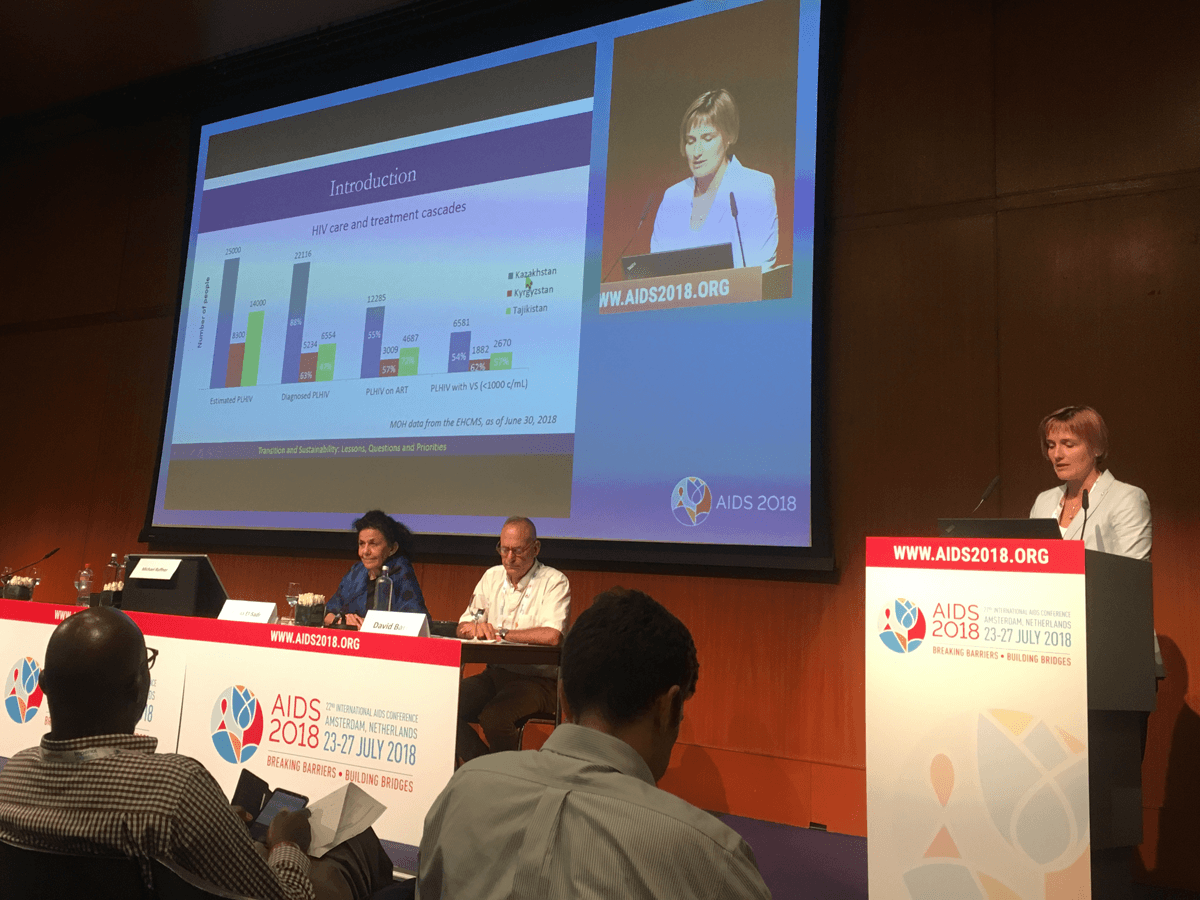“Transition and Sustainability: Lessons, Questions and Priorities”
OpCon Satellite Session
Thursday, July 26, 2018
AIDS 2018 Conference, Amsterdam
As countries strive to reach and sustain epidemic control, issues of sustainability and transition move to center stage. This panel explored the challenges of transition from donor-supported to country-owned models and lessons learned about crafting sustainable health programs. Drawing upon experience from Ministries of Health, donors, academia and civil society, the panel highlighted key challenges and lessons learned.
Videos and slides available below.
Click here for the YouTube playlist.
Moderators:
- Wafaa El-Sadr, Global Director, ICAP at Columbia University
- David Barr, Senior Consultant, The Fremont Center
Presentations:
- Sustainability: the view from PEPFAR
Michael Ruffner, Deputy Coordinator, Financial and Programmatic Sustainability, Office of the Global AIDS Coordinator, U.S. Department of State
- Sustainability: the view from the Global Fund
Ade Fakoya, Senior Disease Coordinator, HIV, The Global Fund for AIDS, TB & Malaria
- Do less harm: modeling of HIV program contraction
Emily Hyle, Assistant Professor of Medicine, Harvard Medical School
- The impact of the PEPFAR pivot on “non priority” sites in Uganda
Henry Zakumumpa, Makerere University and Jess Wilhelm, Johns Hopkins University
- The impact of Global Fund transition strategies on national HIV programs in Central Asia
Anna Deryabina, Central Asia Country Director, ICAP Columbia
- What happens to HIV programs when donors leave?
Sharonann Lynch, HIV and TB Advisor, Médecins Sans Frontières
- Zimbabwe’s approach to HIV program transition and sustainability
Gerald Gwinji, Secretary, Ministry of Health and Child Care, Zimbabwe





